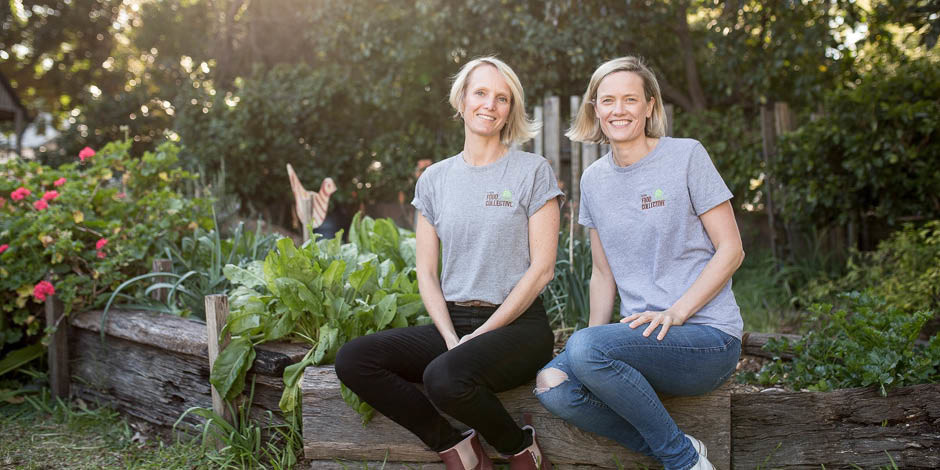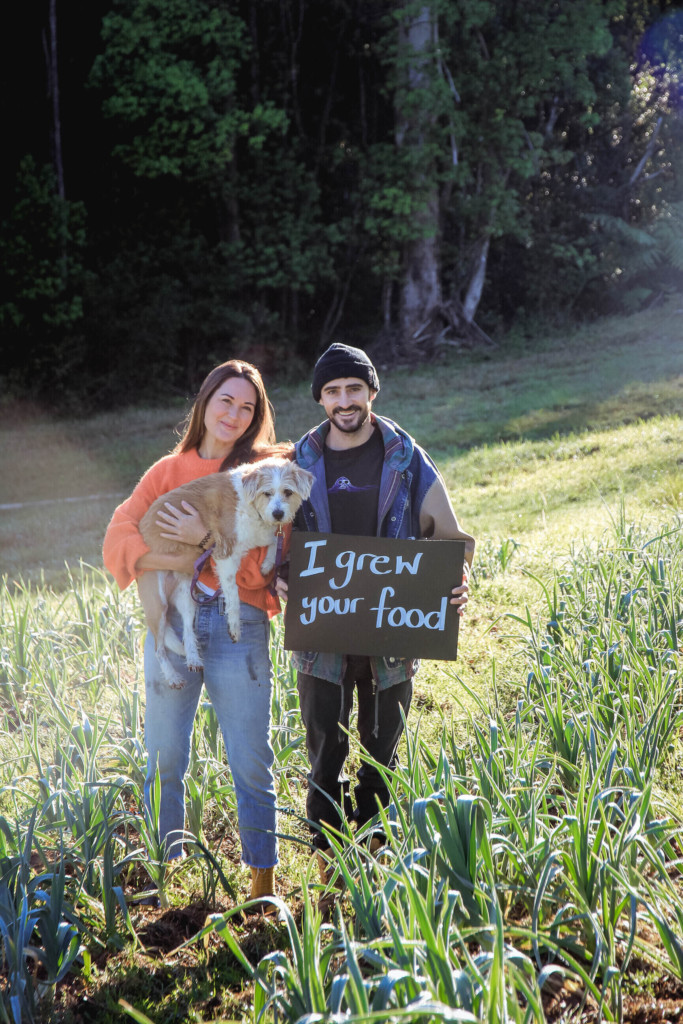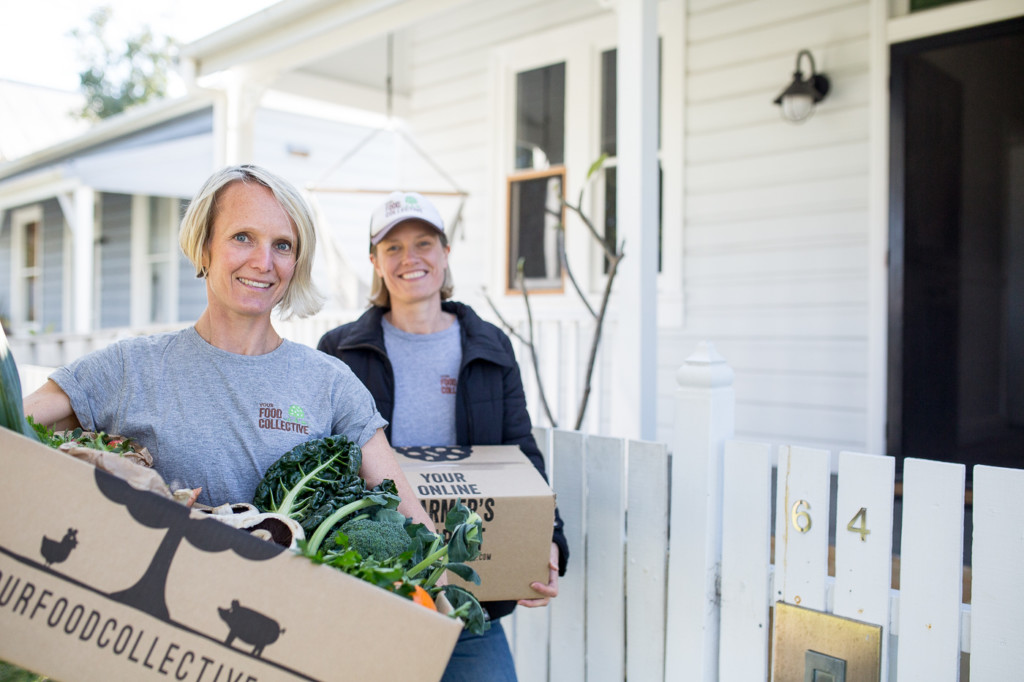Your Food Collective connects growers with future-focused consumers
Female-founded market delivery service, Your Food Collective, wants to be the most sustainable grocery offering in Australia – with technology geared to change the consumer foodscape and global ambitions backed by a successful Series A funding round.
 Lauren Branson and Cara Cooper, Co-Founders of Your Food Collective
Lauren Branson and Cara Cooper, Co-Founders of Your Food Collective
Every year, each Australian wastes – on average – one in five bags of groceries, equal to 312kg per person. That waste happens at various points along the supply chain: in the ground, from oversupply and inefficient harvesting practices; in the grocery sector, where imperfect produce doesn’t make the cut or where food is lost during transportation or in retail environments; and in homes and restaurants. That’s 7.6 million tonnes of food in total, in Australia alone, accounting for approximately three per cent of the nation’s annual greenhouse gas emissions.
Ecologist Lauren Branson and her cousin Cara Cooper, whose background is in corporate risk assessment, co-founded Your Food Collective in part to contribute to reversing those figures.
“Our food system is complex. The history of how we got here is complex. The solutions aren’t simple,” says Lauren. “As consumers, we all have an opportunity to play a really significant role in our food landscape moving forward.
“We’re focused on regenerative practices, circularity and zero waste across the supply chain and can definitely do that.”
RELATED: The Australian prawn farm raising the bar for sustainable aquaculture
Paddock to plate: efficient processes for consumers and farmers
Your Food Collective is an online farmer’s market and grocery delivery service that works with regenerative farmers to provide produce directly to consumers in the Sydney and Newcastle regions. YFC sells everything from fruit-and-veg boxes, to T-bone steaks, honey and plant-based ready-made meals. With strict food standards, including a seven-step sustainability criteria that producers must meet, YFC ensures that 95% of produce is sourced “within 250 kilometres of a consumer’s front door”.
The seven-step sustainability criteria centres around many of the things farmers are already doing, such as deploying and capturing data on-farm including soil health, waste reductions, closed loop farming methods, and insetting carbon. This provides farmers with diversity in distribution channels and the ability to attract premium prices to offset their investment in sustainability.
“We have a massive spreadsheet of data that we collect from our producers, on things like their growing practices and their packaging … We collect info on the nutritional content of their products, on the story behind the food, and we have a panel of people who taste the food and rank it using scientific tasting methods,” says Lauren.
RELATED: How to make Australian agriculture more sustainable
The result is a highly complex operation that transparently delivers to consumers, and provides a sustainable source of income for growers. The YFC model ensures farmers don’t harvest until an order is placed for their produce; that consumers only have access to the produce that sustainable, regenerative farmers are growing in that season; and that there is less waste at all stages of the cycle. A custom-built backend enables adjustment ordering, says Lauren, “ensuring producers are only harvesting what they need for sales”.

“We also grade our food based on flavour, not on size and shape,” Lauren explains. “A shortened supply chain means that food is less than 48 hours from paddock to plate.”
RELATED: The rising potential of Australian perennial wheat
Lauren recognises some consumers may be hesitant about relinquishing control of their shop, but says that the YFC difference lies in the team’s attention to detail and respect for produce and farmers.
“Customer experience is at the top of our mind with everything we do. We’re making sure we pick the best produce, and meeting your needs and expectations is incredibly high on our list,” she says. “And also think about how much time you could save if you never had to set foot into a supermarket again.”
Filling the trust gap in grocery delivery services
The strength for YFC, Lauren explains, is in trusting that the business has already done the hard yards in terms of sourcing quality providers, and that they’ll deliver on their promises. YFC also offers recipes and stories on their farmers and producers.
“We’ve done all the sourcing, connections with producers – we bring them to life. It’s reeducating ourselves in terms of ‘what does a good tomato look like?’…We need to go back to reeducation of that, which is all part of it, and something we try to do through our platform by connecting consumers to stories and information,” says Lauren.
“It doesn’t need to be overwhelming for people. If you’ve got good produce, you don’t have to do much with it.”

YFC only work with regenerative farmers, to support resilient and future-focused farming practices in the face of a changing environment.
“If we don’t look at how we’re growing our food and try to build a more resilient landscape, it’s going to be incredibly hard to feed our growing population. It all starts with what you buy at the checkout every single day of the week.”
RELATED: Safflower oil: The game-changing alternative to petroleum and palm
Global technology to guide future-focused food decisions
The COVID-19 lockdowns were a silver lining for YFC, and they’ve managed to maintain a core customer as NSW has emerged from its slumber. YFC have near-term plans to reach $30 million revenue within existing markets, with deliveries currently operating five days a week. They’re keen to enter national markets and grow to a revenue run rate of over $250 million. Since founding in 2017, they’ve demonstrated 135% year-on-year growth, working with over 100 local producers to offer over 700 products. Their goal is to build Australia’s most sustainable grocery offering.
“Our vision is large,” says Lauren. “We’re not moving slowly.”
YFC just closed their Series A capital raise and are working on a tool to provide metrics to guide global consumer decision-making around food sustainability. The platform will offer greater transparency around the environmental impact of food choices, as well as the impact on taste buds, local communities and health, “so that consumers can make the right decision in terms of what to purchase”. YFC are not currently raising capital but Lauren says they are always looking to connect with like-minded companies, individuals and funds excited about the business’ ethos.
“We are looking for strategic investors and partners who truly understand the opportunity to drive positive social and environmental impact through food,” says Lauren.
“Consumers globally are looking for ways to make better food choices and we need to help create a foodscape that can help consumers make those choices and make it easy to make those choices” – one grocery shop at a time.
For more information about Your Food Collective or future investment opportunities, visit YFC here or email here.
Enjoyed this story? Want to learn more about the Asia Pacific region’s innovative agrifood tech ecosystem? Sign up for our newsletter here and receive fresh stories about global leaders, farmers, startups and innovators driving collaborative change.
